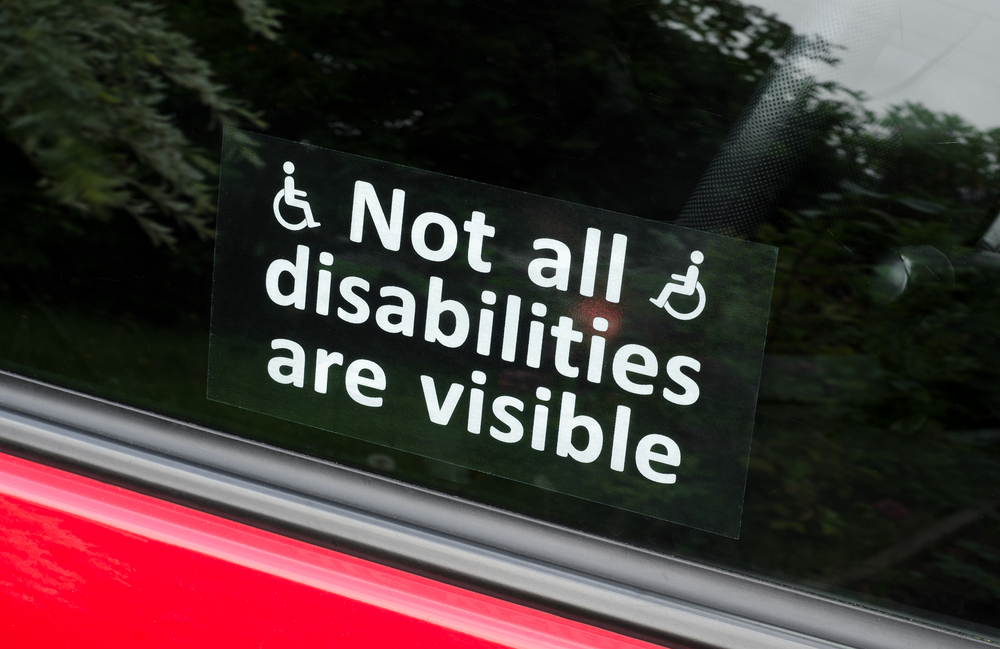
How to Request Reasonable Accommodations at Work
A Clear Guide for California Employees with Disabilities
Navigating Workplace Accommodations
Facing challenges at work because of a disability can feel overwhelming. In California, you are protected by laws that ensure access to reasonable accommodations, so you can do your job effectively. Understanding your rights is the first step. If you’re unsure where to start, know that you’re not alone—many employees have questions about what’s reasonable, how to ask, and what to do if you run into resistance. This article walks you through requesting accommodations at work in California, from defining your rights to taking practical steps, and where to turn if you need help.
Throughout, you’ll find links to related topics like Workplace Discrimination, Wage and Hour Disputes, and Retaliation Claims, since these issues sometimes overlap. For more detailed information about California employment law protections, see our dedicated practice area page.
What Are Reasonable Accommodations?
Reasonable accommodations are changes to your job or workplace that let you perform essential duties despite a disability. These might include:
- Modified work schedules
- Adjusted job duties
- Ergonomic furniture or assistive technology
- Leave for medical treatment
- Permission to work from home
California’s Fair Employment and Housing Act (FEHA) and the federal Americans with Disabilities Act (ADA) both require employers to provide these accommodations unless it would cause significant hardship for the business.
For an overview of disability rights in California, you can also explore our article on Your Rights Under Disability Discrimination Laws.
Who Qualifies for Accommodations?
You may qualify if you:
- Have a physical or mental impairment that limits a major life activity
- Are able to perform your essential job functions with or without accommodation
- Work for an employer with at least five employees (FEHA) or 15 employees (ADA)
If your employer tries to argue that your request is “unreasonable,” or if you’ve faced workplace retaliation, you still have rights.
California and Federal Laws at a Glance
California’s FEHA often offers broader protections than federal law. Key points:
- FEHA applies to employers with five or more employees (ADA covers 15+)
- FEHA covers a wider range of disabilities
- Employers must engage in a good-faith “interactive process” with you
For more on state differences, read our Common Violations of Disability Rights in the Workplace article or see our FAQ at the end of this guide.
The Interactive Process
This is a required back-and-forth conversation between you and your employer to find a workable solution. The process should include:
- Discussing your needs and possible accommodations
- Considering your suggestions seriously
- Looking at alternatives if your first request isn’t possible
Employers must document this process. If they refuse to engage, this may be a violation of law.
How to Make Your Request
Here’s a practical action plan:
- Put It in Writing: Email or send a letter to your manager or HR. Clearly state your disability (a diagnosis isn’t required) and the accommodation you need.
- Be Specific: The more details you provide, the easier it is for your employer to respond.
- Share Medical Support: If relevant, include a doctor’s note describing your work limitations.
- Use the Right Language: Say you’re “requesting a reasonable accommodation under FEHA and the ADA.”
- Keep Records: Save copies of all communications.
You can find a sample request letter from the Department of Fair Employment and Housing.
What If Your Request Is Denied?
If your employer says no, they must give a clear reason—usually that it causes “undue hardship.” Consider these steps:
- Ask for a written explanation
- Suggest alternative accommodations
- Document all conversations
If you suspect discrimination, learn more about Steps to File a Workplace Discrimination Claim.
Protections Against Retaliation
California law makes it illegal for employers to punish you for requesting accommodations. Retaliation can include:
- Demotion or reduced hours
- Unjustified discipline
- Harassment or exclusion
If you notice these signs, our article on How to Prove Retaliation in the Workplace can help you recognize your options.
When to Seek Legal Help
Sometimes, you can’t resolve issues alone. Consider contacting an employment lawyer if:
- Your employer ignores your request
- You’re threatened or punished for asking
- The interactive process breaks down
Attain Law can advise you about legal remedies for disability discrimination and help you navigate next steps.
Common Types of Accommodations
Accommodations vary widely, but might include:
- Accessible parking
- Modified work equipment
- Adjusted break times
- Remote work options
- Job restructuring
If you’re unsure what counts as “reasonable,” see our guide on How to Document Discrimination at Work.
Employer Obligations
Employers must:
- Respond promptly and in good faith
- Maintain confidentiality about your disability
- Provide accommodations unless it causes undue hardship
- Engage in the interactive process
Learn about their full responsibilities under California employment law.
Damages and Remedies
If your employer violates your accommodation rights, you might be entitled to:
- Back pay (lost wages or benefits)
- Job reinstatement
- Policy changes at your workplace
- Compensation for emotional distress
For more information, explore Legal Protections Against Employer Retaliation.
Additional Resources
- California Department of Fair Employment and Housing (DFEH)
- U.S. Equal Employment Opportunity Commission (EEOC)
- Disability Rights California
For issues related to Wage and Hour Disputes or Workplace Discrimination, visit our resource pages.
Contact Attain Law
If you’re facing challenges with workplace accommodations or feel your rights have been violated, Attain Law is ready to help. Our team understands California’s disability laws and can guide you through your options. Call us at (888) 970-8627 or contact us today for a free consultation. We’re here to support you.
Frequently Asked Questions about Requesting Reasonable Accommodations at Work
What is a reasonable accommodation under California law? A reasonable accommodation is any change to the work environment or job duties that enables a person with a disability to perform essential functions. Examples include modified schedules, equipment, or remote work.
How do I request a workplace accommodation? Submit a written request to your employer, describing your disability and the accommodation you need. You do not need to disclose your diagnosis but should describe how your condition affects your work.
Can my employer deny my accommodation request? Employers can deny a request only if it would cause undue hardship—meaning significant difficulty or expense. They must explain their reasoning and consider alternatives.
Is my employer allowed to ask for medical documentation? Yes, employers may ask for reasonable medical documentation to support your request, but only as it relates to the need for accommodation.
What should I do if my employer retaliates after my request? If you face retaliation, document what happened and seek legal advice. Retaliation for requesting accommodations is against California law.
Do I need a lawyer to request accommodations at work? Most accommodation requests can be made directly, but you may want legal help if your employer refuses, delays, or retaliates against you. An attorney can help protect your rights.
Disclaimer: This is an advertisement. The information provided is for general purposes only and is not legal advice. Consult a qualified attorney for your specific case. Attain Law cannot guarantee outcomes, as results vary by situation.
Browse Other Articles for "Disability Rights" in California:
Start Your FREE Consultation
Complete the form for a Free Consultation. No upfront fees, swift action, and we’re only paid when we succeed for you.
Why Choose Attain Law?
- No Upfront Costs
- We operate on a contingency fee basis—you pay nothing unless we win your case.
- Personalized Attention
- Every case is unique. We tailor our strategies to fit your specific situation.
- Proven Track Record
- Our firm has successfully recovered millions for our clients.
- Statewide Representation
- Based in Woodland Hills, we serve clients throughout California.
Justice Is One Step Away
Ready to turn your struggle into strength? At Attain Law, we’re here to take on your fight—whether it’s a car accident, a dangerous drug, or a workplace injury gone wrong. One call starts it all, and we’re with you every step, no upfront cost required.
- Free Case Review
- No Fees Until Victory
- Millions Recovered
- Personal Strategy
- California Coverage
- Relentless Case Pursuit


